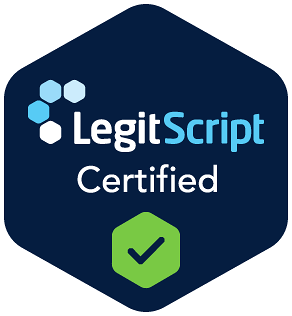Esketamine as a Monotherapy: A New Advance in Treating Depression
The journey of treatment-resistant depression (TRD) is marked by repeated attempts—trial and error through multiple antidepressants—yet for many, true relief remains elusive. The recent FDA approval of Spravato (esketamine) as the first monotherapy for TRD offers a transformative shift in this narrative. For the first time, a treatment designed specifically for these patients is approved to stand alone, without the requirement that a person also take an antidepressant medication. This milestone introduces not just a new therapeutic option, but a new therapeutic philosophy: faster relief, fewer barriers, and renewed hope.
A Novel Mechanism, A New Possibility
What sets Spravato apart is its unique mechanism of action. Unlike conventional antidepressants that target serotonin, norepinephrine, or dopamine pathways, esketamine focuses on glutamate, a neurotransmitter central to neuroplasticity—the brain’s ability to adapt, learn, and heal. Administered as a nasal spray in a clinical setting, this treatment provides an innovative, non-invasive approach to delivering rapid relief.
The results are striking. Clinical trials demonstrated significant improvement in depressive symptoms within 24 hours. For individuals often trapped in a cycle of months-long treatment adjustments, this is a profound breakthrough. Sustained benefits observed over a four-week period further affirm its potential as a durable solution for managing depression.
What is a Monotherapy and Why Does It Matter?
Before this approval, Spravato was primarily used as something called an “adjunct therapy,” requiring concurrent use of an oral antidepressant. While effective for many, this approach still relied on medications that had previously failed or are intolerable. The FDA’s recognition of Spravato as a monotherapy changes the treatment paradigm. For clinicians and patients, this shift provides:
• Simplicity in Treatment: A single therapeutic agent streamlines care, reducing the need for complex medication regimens.
• Enhanced Accessibility: By removing the requirement for additional antidepressants, this approval may lower the cognitive and emotional barriers often experienced by patients navigating treatment-resistant depression.
Implications for the Treatment Landscape
The approval of Spravato as a monotherapy is more than just an expansion of its clinical indications—it represents a reimagining of how we approach TRD. This development acknowledges the complexity of depression and offers a tool designed to work when traditional pathways have faltered.
From a clinical perspective, esketamine allows us to engage the brain in a fundamentally different way. The rapid onset of its effects challenges long-held assumptions about how quickly depressive symptoms can be alleviated. This may prompt healthcare professionals to reconsider the urgency and approach of interventions for depression.
From a human perspective, the approval offers something intangible but essential: hope. For patients and families who have cycled through years of disappointment, the possibility of fast-acting relief can be life-changing.
While approval was provided by the FDA based on a solid evidence base, we are still some months away from being able to offer esketamine (Spravato) as monotherapy. We now await word from the insurance companies on when/if they will cover this treatment. The roll-out of Spravato as monotherapy still has some logistical hurdles to cross but we are getting closer to resolving previous impediments to care and opening access.
Looking Ahead To the Future of Esketamine, Spravato and Ketamine Treatment
The journey does not end here. As esketamine becomes integrated into practice, we must remain vigilant about monitoring its use and outcomes. Questions around long-term efficacy, accessibility, and the need for continued innovation in TRD treatment will shape its future.
At Lumin Health, we are committed to fostering conversations about these advancements, ensuring that our patients receive compassionate, evidence-based care tailored to their unique needs. We celebrate this moment in mental health care and look forward to the stories of healing it will undoubtedly inspire.
For patients facing treatment-resistant depression, esketamine’s approval as a monotherapy represents not just a new option, but a new chance to reclaim their lives. This is a day of progress and possibility—one that reminds us that even in the most resistant cases, recovery is within reach.
About the Author: Dr. Ben Yudkoff, Chief Medical Officer
Dr. Ben Yudkoff is a thought leader in mental health innovation, dedicated to exploring cutting-edge treatments that challenge traditional narratives in psychiatry. At Lumin Health, he leads efforts to translate groundbreaking research into compassionate, transformative care for patients.







